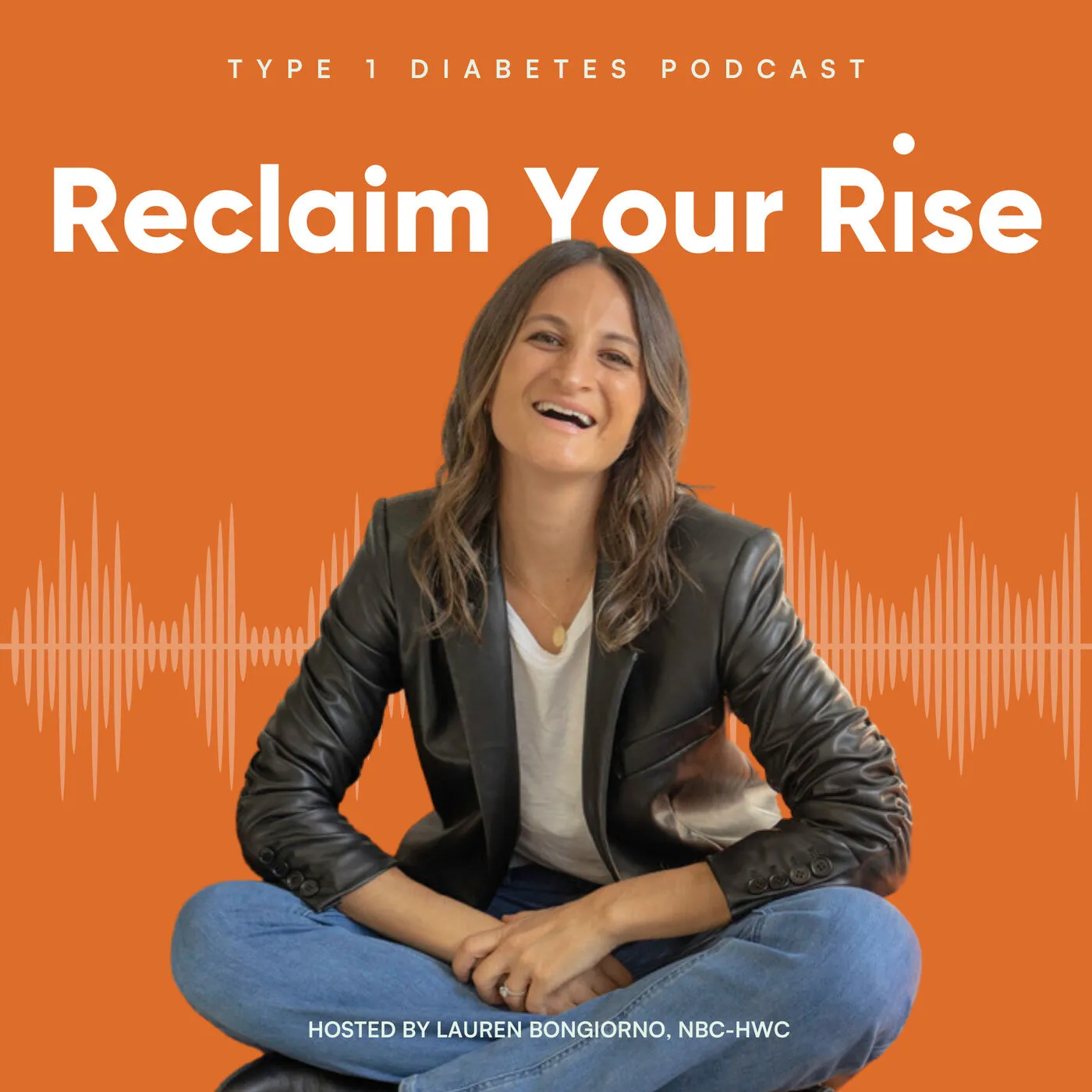It’s hard enough to be diagnosed with cancer, but for those of us living with T1D, it’s even harder to imagine working through cancer treatment while managing our blood sugars.
Our guest on episode 67 of the Reclaim Your Rise podcast, Nikki Abara, is a truly remarkable human whose story is going to leave you inspired and simply just in awe of what us type ones are capable of, no matter what circumstances come our way. I first met Nikki in January, 2021 when she came to Risley for coaching after living with type one diabetes for 42 years. She is a pediatric ER nurse, wife and mother who has basically dedicated her life to caring for others, and she finally realized that she needed support in prioritizing her own health. Her a1c back then was an 8.3 with 40% time in range, and after coaching, as she was able to lower it sustainably to a 6.6 with 80% time in range for the first time in her life with diabetes, she was feeling proud. She was feeling healthy. She was feeling unstoppable. Then an unexpected turn of events happened in February, 2022. She was taking a shower and felt a lump in her breast. Two days later, at 43 years old, she was diagnosed with stage three breast cancer.
In this episode, we cover a lot and it gets emotional at times, but mainly we dive into how Nikki navigated the cancer diagnosis. Nikki quickly learned that there are limited resources and people that her doctors had worked with who had both type one and cancer. And in fact, what prompted me to invite Nikki on the show was that last month, journalist and TV host, Maria Mannos came out and said that she was diagnosed with type one diabetes in summer 2022, followed by stage two pancreatic cancer earlier this year.
So I was doing some research and digging, and I found that yes, in fact there were not only limited resources, but limited stories of people who have been through this experience. So I not only wanted to have Nikki on to share her story and show how resilient us type ones can be no matter what comes our way, but for any future people who do have type one that get a cancer diagnosis so that they can actually relate to and hear from somebody who went through something that they're about to embark on as well.
Listen to the full episode to hear Nikki’s story, and continue reading to for Nikki’s tips and recommendations for anyone else navigating cancer and T1D.
Top Tips:
- Recognize what you CAN control
"I couldn't control the meds I was given. And so I had to kind of focus on, okay, I can't control that, but what can I control around that? Or what can I do for myself around that? And what are the other things… like I can be over here stressed all day, crying all day. What's it gonna do? That's gonna elevate my blood sugars. Or I can have a different attitude towards this and just go with the flow and take every day as it comes. And so that's where I think a lot of this had to do with my mind shift. That started in the coaching program. And so had I not had that coaching and been in that space and that change in my mindset, I truly believe my outcomes with my cancer diagnosis would've been very different.” - Be prepared for your insulin needs to change
"I just kind of watched my patterns and I wrote it down so then I could clearly see, you know, what is my pattern?And so really by week two, I realized that it took about four days [after a treatment] for my blood sugars to go back to a normal space. And so it took a little playing around, but on my pump I had an insulin setting and it was called ‘steroids’.And so when I got steroids, this was the setting I was on, and my hourly rate was a lot higher. It was a lot more need than I normally needed. But you know, and some people have resistance to that too… like, ‘if I need more insulin, that means I'm not in control and I should be able to bring it down with exercise and food.’ Well, guess what? With steroids, throw that out the door. It didn't matter how well I ate, it didn't matter if I went for a walk… And, and somebody else's experience might be different. Maybe those things did work, but I tried that it didn't work.” - Ask questions
"I think my biggest piece of advice would be to ask questions… Talk with your endocrinologist about it or with your oncologist and just really understand, how are the meds likely to affect your numbers? And just because one doctor tells you something, that doesn't mean that's another doctor's same opinion. So maybe get a second opinion. Really find out have they treated patients like you before?”
Top Resources:
- @the_breasties Nikki says she followed this account on Instagram because they share so much info, data and offer seminars and support groups.
- The Cancer Fighting Kitchen Nikki says she frequented this cookbook for nourishing meals throughout her treatment.
- The Diabetic Health Journal This was Nikki’s top tool for identifying fluctuating blood sugar patterns and being mindful throughout the day.






